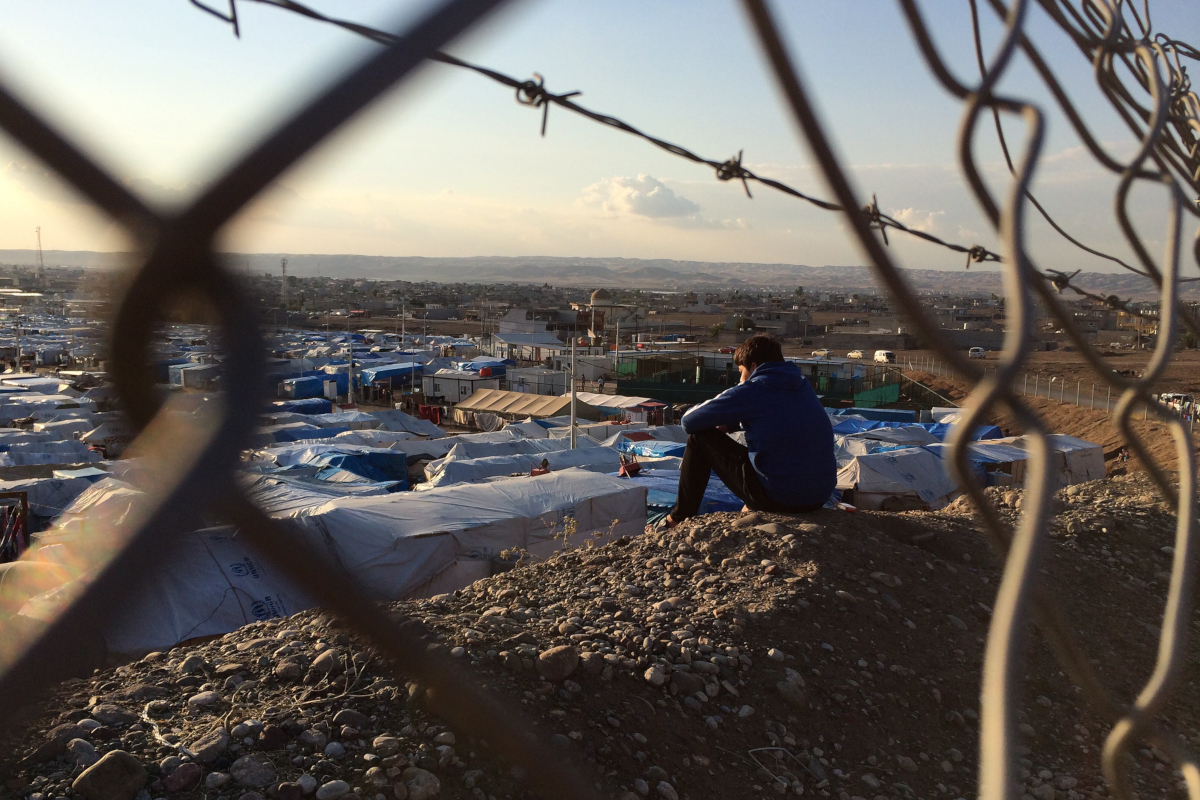Deportations: "European return decision" in the works
Topic
Country/Region
20 November 2023
The Spanish Council Presidency wants the EU to start designing legislation for a "European return decision," to ensure harmonised deportations procedures and practices across the bloc, and increase the number of third-country nationals removed from EU territory.
Support our work: become a Friend of Statewatch from as little as £1/€1 per month.

Image: Jean-Etienne Minh-Duy Poirrier, CC BY-SA 2.0
The proposal is contained at the end of a document (pdf) designed to inform discussion at the Schengen Council meeting on 5 December, and which discusses the array of projects and initiatives aimed at increasing the number of deportations from the EU.
The paper argues that despite policy efforts to improve the mutual recognition of national return decisions by member states, "fragmentation will remain".
Therefore, "it is probably worth looking ahead towards the new legislative period and start designing a European return decision, by analysing the elements and solutions it should contain."
The document contains no further suggestions for what those "elements and solutions" should be, but member state delegations are asked: "Do you consider this is the right moment to start working on European return decision?"
Amongst the issues raised in the document, and which the Presidency may hope can be resolved by a European return decision, is "the abuse of asylum systems with a view to delaying or avoiding returns."
Some measures are already under discussion that seek to deal with "unfounded" asylum applications: the incoming Asylum Procedure Regulation, currently under negotiation, will introduce an accelerated procedure for last-minute asylum claims, as well as "links between the issuance of the negative asylum decision with the issuance of the return decision."
The same law may make it possible to deport people prior to a final decision on their claim, the Presidency notes, though this depends on the outcome of negotiations between the Council, Parliament and Commission.
The Presidency also calls on member states to step up their use of Frontex's deportation services, which since 2022 have included the "novelty" of "Frontex-organised returns on charter flights."
"Such Frontex organised flights have already been implemented to Albania, Nigeria, Bangladesh and most recently, to Georgia and Albania," says the document. "The flight to Bangladesh had a participation of 9 Member States, with 63 returnees on board of the flight, demonstrating a real European approach."
The document goes on to celebrate further novelties:
"The last Frontex organised flight to Albania and Georgia with 59 returnees on board, organised under a pilot project with Spain, apart from having a double destination for the first time, also tested another novelty, i.e., combining voluntary and non-voluntary returnees on board."
The Presidency considers that these use of such flights organised by Frontex "should become a common practice" for the member states.
Documentation
- Making the returns system more effective (Council doc. 15277/23, LIMITE, 13 November 2023, pdf)
Our work is only possible with your support.
Become a Friend of Statewatch from as little as £1/€1 per month.
Further reading

EU seeking informal agreement to boost deportations to Iraq
The EU is pushing for a “non-binding instrument” with Iraq in order “to increase Iraq’s cooperation on readmission” – that is, acceptance of deportations.

Frontex: deportations at record high in first half of 2023
The European Union's border agency, Frontex, facilitated the deportation of nearly 18,000 individuals from EU territory during the first half of 2023, marking an unprecedented peak. This surge in removals, executed through both scheduled flights and "voluntary" return procedures, demonstrates a 60% upswing in deportations compared to the corresponding period in 2022.

Spanish Council Presidency: how can we use the diaspora population as leverage for migration control?
The EU should use policies on the diaspora population to step up pressure on third countries to cooperate with migration control, the Spanish Council Presidency has suggested, by “embedding discussions on diaspora relations in bilateral relations on migration with partner countries.”
Spotted an error? If you've spotted a problem with this page, just click once to let us know.

